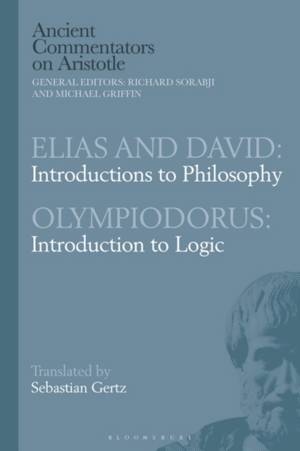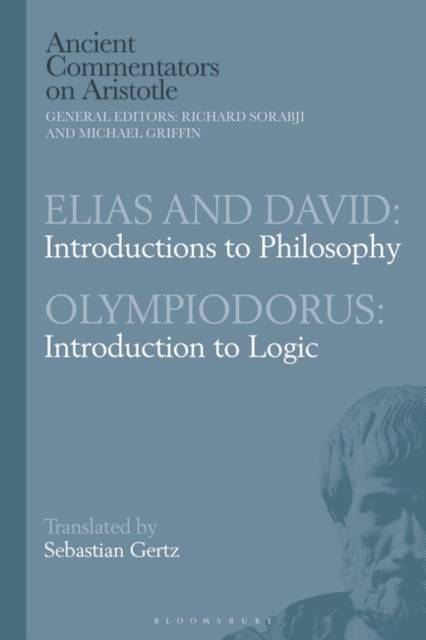
Bedankt voor het vertrouwen het afgelopen jaar! Om jou te bedanken bieden we GRATIS verzending (in België) aan op alles gedurende de hele maand januari.
- Afhalen na 1 uur in een winkel met voorraad
- Gratis thuislevering in België vanaf € 30
- Ruim aanbod met 7 miljoen producten
Bedankt voor het vertrouwen het afgelopen jaar! Om jou te bedanken bieden we GRATIS verzending (in België) aan op alles gedurende de hele maand januari.
- Afhalen na 1 uur in een winkel met voorraad
- Gratis thuislevering in België vanaf € 30
- Ruim aanbod met 7 miljoen producten
Zoeken
Elias and David
Introductions to Philosophy with Olympiodorus: Introduction to Logic
Sebastian Gertz
€ 76,45
+ 152 punten
Omschrijving
The three ancient philosophical introductions translated in this volume flesh out our picture of what it would have been like to sit in a first-year Philosophy course in ancient Alexandria.
Ammonius (AD 445-517/26) set up a new teaching programme in Alexandria with up to six introductions to the philosophy curriculum, which made it far more accessible, and encouraged its spread from Greek to other cultures. This volume's three introductory texts include one by his student Olympiodorus and one each by Olympiodorus' students Elias and David.
Elias' Introductions to Philosophy starts with six definitions of Philosophy, to which David adds replies to the sceptical question whether there is such a thing as Philosophy. Olympiodorus' text translated here is an Introduction to Logic, which is just one of the three introductions he wrote himself.
Ammonius (AD 445-517/26) set up a new teaching programme in Alexandria with up to six introductions to the philosophy curriculum, which made it far more accessible, and encouraged its spread from Greek to other cultures. This volume's three introductory texts include one by his student Olympiodorus and one each by Olympiodorus' students Elias and David.
Elias' Introductions to Philosophy starts with six definitions of Philosophy, to which David adds replies to the sceptical question whether there is such a thing as Philosophy. Olympiodorus' text translated here is an Introduction to Logic, which is just one of the three introductions he wrote himself.
Specificaties
Betrokkenen
- Auteur(s):
- Uitgeverij:
Inhoud
- Aantal bladzijden:
- 272
- Taal:
- Engels
- Reeks:
Eigenschappen
- Productcode (EAN):
- 9781350136441
- Verschijningsdatum:
- 31/10/2019
- Uitvoering:
- Paperback
- Formaat:
- Trade paperback (VS)
- Afmetingen:
- 156 mm x 234 mm
- Gewicht:
- 376 g

Alleen bij Standaard Boekhandel
+ 152 punten op je klantenkaart van Standaard Boekhandel
Beoordelingen
We publiceren alleen reviews die voldoen aan de voorwaarden voor reviews. Bekijk onze voorwaarden voor reviews.









